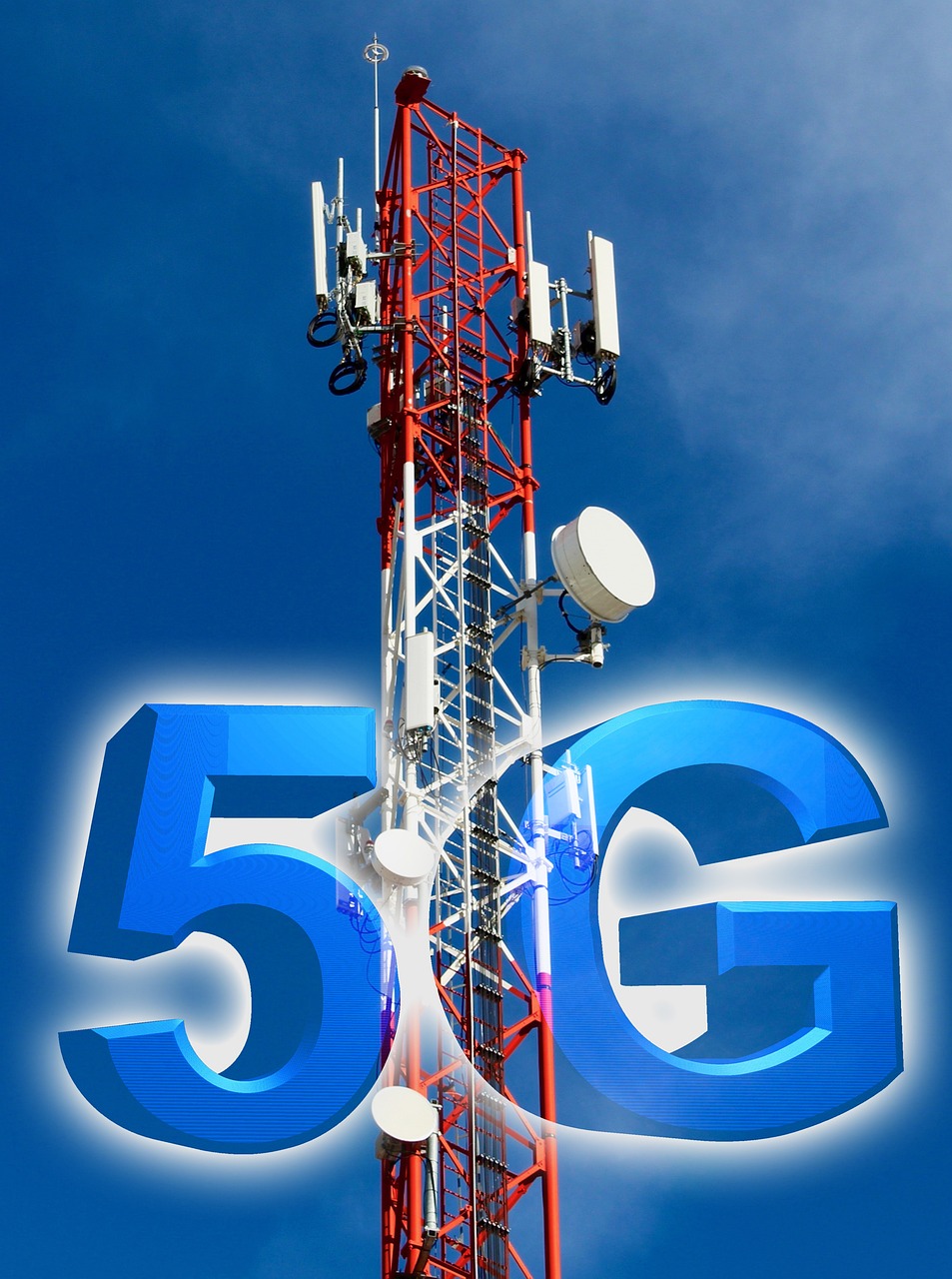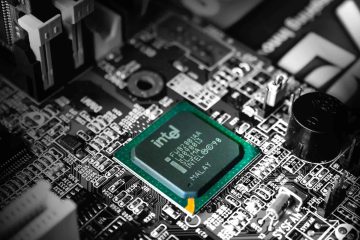The world is rapidly evolving, and technology has become an integral part of our daily lives. With each passing day, we are introduced to new technologies that make our lives easier and more convenient. One such technology that has been making waves in recent times is 5G. The fifth-generation wireless technology (5G) promises faster data transfer rates, low latency, and high bandwidth. This technology is set to revolutionize the way we communicate and connect with others. In the future networks, 5G will enable global device connectivity and faster talk speeds.
The gaming industry is one sector that will benefit significantly from the 5th generation technology due to its low latency and high bandwidth capabilities. Gamers require a fast internet connection with minimal lag time for a seamless gaming experience. With future networks such as 5G, gamers can expect faster download speeds, smoother gameplay, and better graphics quality. Additionally, the quality of service (QoS) provided by these key insights will ensure a more reliable and consistent gaming experience.
Apart from the gaming industry, businesses and individuals alike will also benefit from the efficiency of 5th generation (5G) technology. With its advanced quality of service (QoS) capabilities, coverage is improved, allowing for uninterrupted voice services. Faster data transfer rates mean increased productivity for businesses as they can transmit large files quickly without any delays or interruptions. Individuals can enjoy uninterrupted video streaming without buffering issues.
With the introduction of 5G technology, the world will experience a significant improvement in communication and connectivity. It will enable us to stay connected with loved ones even when we are miles apart while providing us with access to information at our fingertips. This means that voice call and voice service will be much clearer and smoother, thanks to the new radio technology. Moreover, sending and receiving voice messages will be faster and more efficient than ever before.
Top Podcasts for Exploring the Potential Impact of 5G on Various Industries
Podcasts have become an increasingly popular medium for learning about industry trends and insights. With the advent of 5G technology, several podcasts have emerged that explore its potential impact on various industries. If you’re interested in understanding how 5G can revolutionize different sectors, check out these must-listen podcast episodes from the Mobile World Congress. They cover topics such as voice calls, voice services, and voice messages, which are crucial to staying ahead of the curve in today’s fast-paced mobile world.
1. “The Future of Smart Cities” by IoT For All
In this podcast episode, Ken Briodagh talks to Michael Zeto, General Manager of Smart Cities at AT&T, about how 5G technology can transform cities into smart cities. They discuss how 5G networks, with improved Quality of Service (QoS), can enable autonomous vehicles and real-time monitoring systems. The discussion took place during Mobile World Congress where they also touched on the potential for remote healthcare services and the use of voice calls in smart city applications.
2. “How 5G Will Revolutionize Healthcare” by The Wireless Way
Hosted by Andrew Leyden, this episode of the podcast, recorded at Mobile World Congress, features an interview with Dr. Shai Rozenfeld, Director of Product Management at Qualcomm Technologies Inc., who shares his insights on how 5G will transform healthcare delivery. They discuss topics such as remote patient monitoring, telemedicine services and augmented reality applications in healthcare. Additionally, Dr. Rozenfeld talks about the importance of QoS for voice calls in healthcare settings.
3. “The Impact of 5G on Retail” by The Tech Talks Daily Podcast
Neil C Hughes interviews Timo Elliott from SAP Innovation Evangelist in this episode about the potential impact of 5G on retail businesses at the Mobile World Congress. They explore how retailers can leverage data analytics and AI-powered solutions to provide personalized customer experiences using ultra-fast connectivity enabled by 5G, including voice service and voice call. Additionally, they discuss the benefits of UE for retailers in enhancing their customer engagement strategies.
4. “The Future of Manufacturing with Industry 4.0 and Beyond” by Connected World
This episode features Peggy Smedley in conversation with John Deere’s Alex Purdy discussing the future of manufacturing with Industry 4.0 and beyond powered by technologies like IoT and AI enabled through fast connectivity offered by the fifth generation wireless network. The conversation took place at the Mobile World Congress, where they also discussed the importance of voice services and UE in enhancing the user experience. They also touched on the significance of SRVCC in ensuring seamless handover between LTE and 5G networks.
By listening to these podcast episodes, you will gain a better understanding of how 5G can disrupt industries and create new opportunities for businesses. You will also learn about the various challenges that come with implementing 5G technology and how companies are working to overcome them. Additionally, you will hear discussions on the latest developments in 5G at the Mobile World Congress, the potential for voice services with 5G technology, and the importance of user equipment (UE) in the implementation of 5G networks.
Insights from Experts and Thought Leaders in the Field of 5G Technology
Key Insights from Experts and Thought Leaders in the Field of 5G Technology
Service providers are investing heavily in 5G networks to improve user experience, especially for voice calls and UE. With the rise of mobile technologies, users’ demand for faster internet speed and reliable connectivity has never been higher. This is where 5G technology comes into play. According to industry experts, 5G networks can provide speeds up to 100 times faster than current 4G networks while reducing latency by a factor of ten. As a result, service providers are investing billions of dollars in building 5G infrastructure across the globe to ensure better voice quality and UE for every episode of usage.
Ericsson’s network slicing technology enables service providers to offer customized services to different types of users with varying needs. By creating virtual networks that can be customized according to individual user requirements, service providers can cater to specific needs such as high-speed connectivity with low latency for gaming companies or secure and reliable connectivity for enterprises. Additionally, the technology can also enhance the user experience (UE) by providing improved voice quality and reducing call drops. With Ericsson’s network slicing technology, service providers can tailor their services to meet the demands of every episode of their customers’ digital journey.
Use cases for 5G technology are expanding rapidly, creating new ecosystems for energy and other industries. The potential use cases for 5G technology are vast and varied, ranging from autonomous vehicles and smart cities to remote healthcare services and industrial automation. As more industries adopt this technology, we can expect new ecosystems to emerge that will transform the way we live and work. With the addition of UE capabilities, users can experience faster speeds and improved connectivity. Additionally, voice commands can be used to control devices in smart homes, making daily tasks more efficient. In the latest episode of the 5G revolution, industries are exploring new ways to utilize this technology for even greater impact.
At MWC Barcelona 2021, several thought leaders discussed the potential impact of 5G on various industries. In one session, experts talked about how energy companies could use 5G technology to monitor power grids in real-time and optimize energy consumption based on demand patterns. In another session, experts discussed how healthcare providers could leverage this technology to provide remote medical consultations and surgeries. Additionally, the implementation of 5G could enhance voice services and improve user experience (UE), while ensuring seamless connectivity during each episode.
Latest Developments and Trends in 5G Technology
5G technology is the latest development in mobile networks, offering faster speeds and lower latency than ever before. As the world becomes more connected, 5G has become a crucial element of future networks. With the introduction of voice service, users can now enjoy clearer and more reliable communication on their UE devices. In this episode, we will discuss the latest developments and trends in 5G technology.
New Radio (NR)
The new radio (NR) is a key component of 5G technology that enables it to deliver on its promises of increased speed and reliability. NR allows for higher frequencies to be used for communication, which results in faster data transfer rates. NR provides better coverage and capacity compared to previous generations of mobile networks. Additionally, NR also supports voice service, ensuring clear audio quality during calls. So, whether you’re streaming your favorite episode or making an important call, NR has got you covered.
Mobile World Congress (MWC) Series
At the latest episode of Mobile World Congress (MWC) series, the latest trends and innovations in 5G technology, including voice and UE capabilities, are showcased, highlighting the potential of this new generation of mobile networks. The event brings together industry leaders from around the world to showcase their products and services related to 5G technology.
One trend that emerged at MWC is edge computing. Edge computing involves processing data closer to where it is generated rather than sending it all back to a central server for processing. This can reduce latency and improve response times for applications that require real-time processing. With the emergence of 5G, users can experience faster UE speeds and better voice quality, making it easier to stream their favorite episodes.
Another trend at MWC was network slicing. Network slicing involves dividing a single physical network into multiple virtual networks with different characteristics tailored to specific use cases or customers. This allows for greater flexibility in managing network resources and providing customized services, including voice services for UE devices and ensuring uninterrupted connectivity during an episode of high network traffic.
Why Strictly Necessary Cookies are Important for Website Functionality
Strictly Necessary Cookies: The Backbone of Website Functionality
When you visit a website, you may have noticed a notification about the use of cookies. These small files are essential for website functionality and provide a better user experience. Among these cookies, strictly necessary cookies are the most crucial ones that allow users to navigate the website and access its features with ease. These cookies also ensure that the website’s UE is optimized, enabling users to interact with the website using voice commands or accessing a specific episode without any hassle. In this section, we will discuss why strictly necessary cookies are important for website functionality.
Navigating Websites with Ease
Strictly necessary cookies help websites remember your preferences and settings, such as language preference or login information. Without these cookies, websites would not be able to remember your preferences, and you would have to set them every time you visit the site. This can be frustrating and time-consuming for users who frequently visit the same website. Voice commands can also be remembered through these cookies, allowing for a more convenient browsing experience. Additionally, if you’re watching a series with multiple episodes, these cookies can save your progress and resume playback from where you left off.
Moreover, strictly necessary cookies help websites load faster by caching data on your device. For instance, when you visit an e-commerce site like Amazon or eBay, these sites use cookies to store items in your cart so that they remain there even if you leave the site or close your browser accidentally. This makes the user experience (ue) more seamless and efficient. Additionally, voice commands can also be stored using cookies, allowing for hands-free browsing and shopping.
Accessing Website Features
Strictly necessary cookies enable essential features of a website such as online shopping carts, payment gateways, and security protocols that protect user data from cyber threats. For example, when making an online purchase using credit card details on an e-commerce platform like Shopify or WooCommerce, strictly necessary cookies ensure that sensitive information is encrypted during transmission. Voice commands can also be used to navigate websites and make purchases, with the help of strictly necessary cookies that facilitate voice recognition technology.
In addition to this, some websites require age verification before allowing access to certain content such as alcohol-related products or adult content. Strictly necessary cookies help verify age by storing information about birthdates entered by users during registration.
Ensuring Website Functionality
Without strictly necessary cookies enabled on a website’s server-side codebase (backend), some features may not work correctly or at all. This can lead to poor user experience and loss of potential customers for businesses running e-commerce platforms.
For instance, suppose a user visits an online store like Nike or Adidas to purchase shoes, but the website’s server-side codebase does not allow strictly necessary cookies. In that case, the user may not be able to add items to their cart or complete the checkout process.
Social Media Cookies: Pros and Cons
ConsumerLab study shows that 57% of users are willing to share their data for personalized ads.
Users today are more aware than ever of how their personal information is being used by social media platforms. However, a recent ConsumerLab study found that over half of users are still willing to share their data in exchange for personalized advertisements. This willingness can be attributed to the fact that many users see personalized ads as a way to discover new products and services that they may not have otherwise known about.
While some may argue that this willingness to share personal data is concerning, it’s important to note that social media platforms rely on this information in order to provide targeted advertising. By understanding a user’s interests, demographics, and online behavior, these platforms can serve up ads that are more likely to resonate with them. In turn, this benefits both advertisers and consumers alike.
Social media cookies can improve user experience by providing relevant content and recommendations.
One of the main benefits of social media cookies is their ability to enhance the overall user experience. By tracking a user’s activity on a platform, these cookies can provide tailored content suggestions and recommendations based on their interests. For example, if a user frequently engages with posts related to fitness and wellness, they may receive recommendations for similar accounts or content.
In addition to tailored content suggestions, social media cookies also play a role in improving overall functionality and ease-of-use on these platforms. They can remember login information and preferences so that users don’t have to constantly re-enter this information every time they visit the site.
However, social media cookies can also lead to privacy concerns and potential exploitation of personal data.
While there are certainly benefits associated with social media cookies, it’s important not to overlook some of the potential drawbacks as well. One major concern is the issue of privacy – many users worry about how their personal information is being used by these platforms and whether or not it could potentially be exploited by third parties.
There is always the risk that social media cookies could be used to track a user’s activity across multiple sites and platforms, creating a more comprehensive profile of their online behavior. This can be concerning for those who value their privacy and prefer not to have their every move tracked and analyzed by these companies.
Personal Information: Do Not Share or Sell
In today’s digital age, personal information has become a valuable commodity. Companies collect data on consumers to better understand their preferences and areas of interest. Unfortunately, this information can be shared or sold without the consumer’s consent, leading to privacy concerns. With the advent of 5G services, there are new ways to protect personal information.
Improved Coverage and Faster Data Speeds for Consumers
5G services offer improved coverage and faster data speeds for consumers. This means that users can access the internet more quickly and efficiently than ever before. However, with greater connectivity comes a greater risk of identity theft and other privacy violations. To protect themselves, consumers should be mindful of what information they share online.
Standalone NR Devices and IMS Services Help Protect Personal Preferences and Information
To help protect personal preferences and information, standalone NR devices and IMS services have been developed. These technologies allow users to control who has access to their personal data while still enjoying the benefits of 5G connectivity.
Vonr Technology Allows for Secure Voice Calls over 5G Networks
One technology that is particularly useful in protecting personal information is Vonr technology. This allows for secure voice calls over 5G networks, ensuring that conversations remain private even when using a public network.
Consumers Can Control the Ads They See by Managing Their Website and App Data
Another way that consumers can protect their personal information is by managing their website and app data. By doing so, they can control the ads they see online while also reducing the amount of personal information available to companies.
Emphasizing the Significance of “The Voice of 5G”
As the world continues to evolve, so does technology. One of the latest advancements in technology is 5G, which has been a hot topic in recent years. The potential impact of 5G on various industries has been explored extensively through top podcasts and insights from experts and thought leaders in the field. As we continue to witness new developments and trends in 5G technology, it is important to emphasize the significance of “the voice of 5G.”
Strictly necessary cookies play a crucial role in website functionality, while social media cookies have both pros and cons. It is imperative that personal information is not shared or sold without consent. These are just a few examples of topics related to “the voice of 5G” that require attention.
The potential impact of 5G on various industries cannot be underestimated. From healthcare to transportation, education to entertainment, the possibilities are endless. Through top podcasts and insights from experts and thought leaders in the field, we have gained profound understanding of what lies ahead.
As we witness new developments and trends in 5G technology every day, it is important for us all to keep up with “the voice of 5G.” This will enable us to make informed decisions about how we use this technology and how it impacts our lives.




